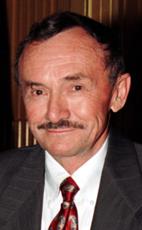Madam Speaker, it was not my intention to speak to the motion. However because the previous three members who spoke have more or less moved away from the generalities of the motion and directed their attention solely to the Westray disaster, I would like to make a contribution. I am a mining engineer by profession and I have worked many years underground in many parts of the world. I would like to give the House my particular take on this disaster.
The last member who spoke made specific reference to the negligence of the regulatory system. He did not use those words but I will use them. I believe that the heart of the problem at Westray was that there was such enormous political pressure to open this mine in the first place, when there was good advice from mining experts that it was not a viable operation, that the shaft should never have been sunk, that they had had methane problems in that area historically every time they tried to mine there. There was definitely a recommendation that the mine not be developed. However, because of provincial and federal pressures and the huge amounts of government money put forward to get this thing going, there was also pressure on the regulatory system. As I understand it, and I stand to be corrected, I believe the mine inspector was under considerable pressure not to shut that operation down.
When I was working in the mines, I never ever encountered a situation where line management was anything but safety conscious. Line managers would do whatever was necessary to keep a mine safe. They had the advantage of having the mine inspectors behind them. In other words, even if management in Toronto said they had to get production up, line management could still do whatever was necessary to keep the mine safe. They had the full weight and force of the mine inspector behind them because the mine inspector could shut them down. They had that power.
We are perhaps shooting at the wrong target here. The problem at Westray was not governance. The problem at Westray was safety enforcement. Perhaps we might say that line management was guilty but the mine inspection system failed. Any mine inspector should have been able to spot the violations which have been described here which took place in that mine.
Because there was this one particular disaster, let us not talk about revamping a law which has served us well over the years. That is the law which exempts directors. I am not talking about executives or line management; I am talking about directors. Who in the devil would want to be the director of a company if he or she was going to be held responsible for things that are happening out in the field? The directors do not make managerial decisions. They have nothing to do with it.
A man would have to be insane to accept a directorial position for which he is paid a very small amount of money with most companies. There are directors of multinational companies who are well paid, but the directors of most companies work for an honorarium. They get paid so much a meeting and that is it. Who would take on a position like that? Not me, not if I were going to be held responsible for something that happened 2,000 or 3,000 miles away that I did not know anything about and had no input into.
The problem here is government, government, government. The government failed. The civil servants failed. A group of miners was unnecessarily killed because the inspection system did not work. The inspection system did not do its job. We rely on regulators in industry in this country to keep everyone honest and they did not do it.

